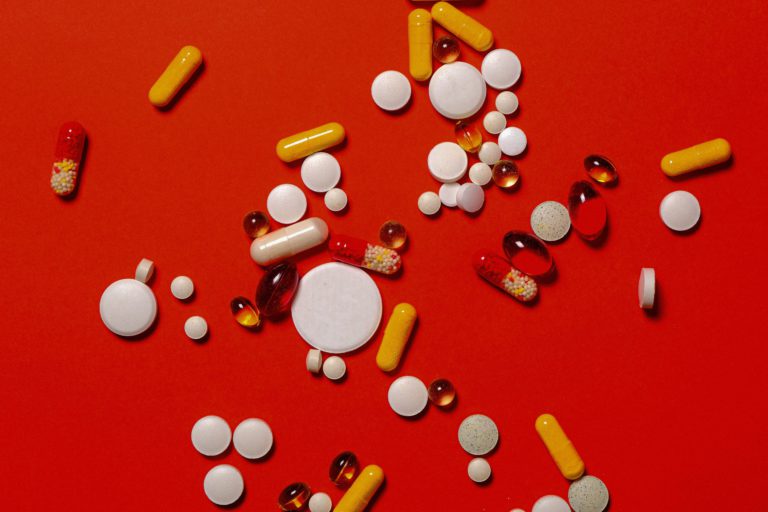
Testosterone Testing and Performance Boost: In the pursuit of optimal performance and overall well-being, it’s essential to understand the role of testosterone in the human body. Testosterone, a hormone primarily associated with male characteristics, plays a crucial role in physical performance, mental focus, and sexual function. In this article, we will explore the significance of testosterone, signs of low testosterone, benefits of optimal levels, testing methods, natural ways to boost testosterone, and medical interventions for low levels.
Understanding Testosterone Testing and Performance Boost
What is Testosterone?
Testosterone is a hormone produced primarily in the testes in men and in smaller amounts in the ovaries and adrenal glands in women. It is responsible for the development and maintenance of male reproductive tissues and secondary sexual characteristics.
Importance of Testosterone for Performance
Testosterone plays a vital role in enhancing physical performance by:
- increasing muscle mass
- bone density
- red blood cell production
It also contributes to
- mental focus
- cognitive abilities and
- overall energy levels.
Additionally, testosterone influences libido and sexual function, supporting a healthy sex life.
Signs of Low Testosterone

Decreased Energy and Stamina
One of the primary signs of low testosterone is a persistent decrease in energy levels and stamina. Individuals with low testosterone often experience fatigue, reduced endurance, and a general lack of motivation.
Mood Changes and Depression
Low testosterone levels can impact mood and lead to feelings of sadness, irritability, and depression. It can affect emotional well-being, making individuals more susceptible to mood swings.
Reduced Muscle Mass and Strength
Testosterone is crucial for maintaining muscle mass and strength. When testosterone levels decline, individuals may experience muscle loss, reduced muscle tone, and decreased physical performance.
Sexual Dysfunction
Low testosterone can negatively affect sexual function, leading to reduced libido, erectile dysfunction, and difficulties achieving or maintaining erections.
Benefits of Optimal Testosterone Levels

Enhanced Physical Performance
Optimal testosterone levels contribute to increased muscle strength, endurance, and overall physical performance. It aids in the development of lean muscle mass and accelerates post-workout recovery.
Improved Mental Focus and Cognitive Abilities
Testosterone plays a role in mental sharpness, focus, and cognitive function. Individuals with optimal testosterone levels often experience improved concentration, memory, and problem-solving abilities.
Increased Libido and Sexual Function
Balanced testosterone levels promote a healthy sex drive and contribute to better sexual performance. It enhances arousal, libido, and overall satisfaction in intimate relationships.
Better Mood and Emotional Well-being
Optimal testosterone levels can positively impact mood stability, reducing the risk of anxiety, depression, and irritability. It supports emotional well-being and an overall sense of contentment.
Testing Testosterone Levels
Where to get tested?
Speedy Sticks offers at-home testosterone test
Blood Test
The most common method of testing testosterone levels is a blood test. It measures the total testosterone in the bloodstream and provides insights into whether levels are within the normal range.
Saliva Test
A saliva test is an alternative method for testing testosterone levels. It is a non-invasive and convenient way to assess hormone levels and can be done at home with a testing kit.
Urine Test
While less common, a urine test can also be used to determine testosterone levels. It measures the amount of testosterone and its metabolites excreted in the urine.
Home Test Kits
Home test kits are available for individuals who prefer to monitor their testosterone levels independently. These kits typically involve saliva or blood sample collection, which is then sent to a lab for analysis.
Natural Ways to Boost Testosterone

Maintain a Healthy Lifestyle
Adopting a healthy lifestyle is crucial for optimizing testosterone levels. This includes regular exercise, maintaining a healthy weight, limiting alcohol consumption, and avoiding smoking.
Get Sufficient Sleep
Adequate sleep plays a significant role in hormone regulation, including testosterone. Aim for 7-9 hours of quality sleep each night to support optimal testosterone production.
Exercise Regularly
Engaging in regular physical exercise, especially resistance training, can stimulate testosterone production. Incorporate strength training, cardiovascular exercises, and high-intensity interval training (HIIT) into your routine.
Manage Stress Levels
Chronic stress can negatively impact testosterone levels. Practice stress management techniques such as meditation, deep breathing exercises, and engaging in activities that promote relaxation.
Consume a Balanced Diet
Maintaining a balanced diet is essential for testosterone production. Ensure your diet includes an adequate intake of protein, healthy fats, vitamins, and minerals. Include foods like lean meats, fish, nuts, fruits, vegetables, and whole grains.
Medical Interventions for Low Testosterone

Testosterone Replacement Therapy
Testosterone replacement therapy (TRT) involves administering testosterone through gels, injections, patches, or pellets. It is recommended for individuals with clinically low testosterone levels and can help alleviate symptoms.
Lifestyle Changes and Supplements
Making lifestyle changes, such as improving sleep quality, managing stress, and adopting a healthier diet, can naturally increase testosterone levels. Certain supplements like zinc, vitamin D, and D-aspartic acid may also support testosterone production.
Consultation with a Healthcare Professional
If you suspect low testosterone levels, it is advisable to consult with a healthcare professional. They can assess your symptoms, perform appropriate tests, and provide personalized recommendations based on your specific needs.
Conclusion
Optimizing testosterone levels can significantly impact overall performance, physical well-being, and mental clarity. By understanding the signs of low testosterone, benefits of optimal levels, testing methods, natural ways to boost testosterone, and medical interventions available, individuals can unlock their potential and achieve their desired performance goals.








